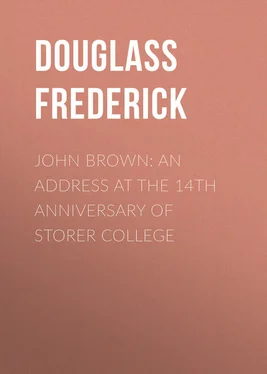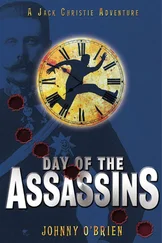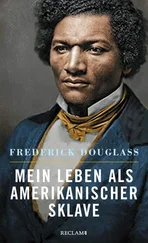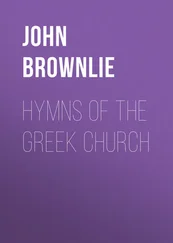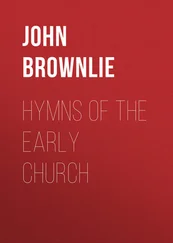There is, in the world's government, a force which has in all ages been recognized, sometimes as Nemesis, sometimes as the judgment of God and sometimes as retributive justice; but under whatever name, all history attests the wisdom and beneficence of its chastisements, and men become reconciled to the agents through whom it operates, and have extolled them as heroes, benefactors and demigods.
To the broad vision of a true philosophy, nothing in this world stands alone. Everything is a necessary part of everything else. The margin of chance is narrowed by every extension of reason and knowledge, and nothing comes unbidden to the feast of human experience. The universe, of which we are a part, is continually proving itself a stupendous whole, a system of law and order, eternal and perfect: Every seed bears fruit after its kind, and nothing is reaped which was not sowed. The distance between seed time and harvest, in the moral world, may not be quite so well defined or as clearly intelligible as in the physical, but there is a seed time, and there is a harvest time, and though ages may intervene, and neither he who ploughed nor he who sowed may reap in person, yet the harvest nevertheless will surely come; and as in the physical world there are century plants, so it may be in the moral world, and their fruitage is as certain in the one as in the other. The bloody harvest of Harper's Ferry was ripened by the heat and moisture of merciless bondage of more than two hundred years. That startling cry of alarm on the banks of the Potomac was but the answering back of the avenging angel to the midnight invasions of Christian slave-traders on the sleeping hamlets of Africa. The history of the African slave-trade furnishes many illustrations far more cruel and bloody.
Viewed thus broadly our subject is worthy of thoughtful and dispassionate consideration. It invites the study of the poet, scholar, philosopher and statesman. What the masters in natural science have done for man in the physical world, the masters of social science may yet do for him in the moral world. Science now tells us when storms are in the sky, and when and where their violence will be most felt. Why may we not yet know with equal certainty when storms are in the moral sky, and how to avoid their desolating force? But I can invite you to no such profound discussions. I am not the man, nor is this the occasion for such philosophical enquiry. Mine is the word of grateful memory to an old friend; to tell you what I knew of him – what I knew of his inner life – of what he did and what he attempted, and thus if possible to make the mainspring of his actions manifest and thereby give you a clearer view of his character and services.
It is said that next in value to the performance of great deeds ourselves, is the capacity to appreciate such when performed by others; to more than this I do not presume. Allow me one other personal word before I proceed. In the minds of some of the American people I was myself credited with an important agency in the John Brown raid. Governor Henry A. Wise was manifestly of that opinion. He was at the pains of having Mr. Buchanan send his Marshals to Rochester to invite me to accompany them to Virginia. Fortunately I left town several hours previous to their arrival.
What ground there was for this distinguished consideration shall duly appear in the natural course of this lecture. I wish however to say just here that there was no foundation whatever for the charge that I in any wise urged or instigated John Brown to his dangerous work. I rejoice that it is my good fortune to have seen, not only the end of slavery, but to see the day when the whole truth can be told about this matter without prejudice to either the living or the dead. I shall however allow myself little prominence in these disclosures. Your interests, like mine, are in the all-commanding figure of the story, and to him I consecrate the hour. His zeal in the cause of my race was far greater than mine – it was as the burning sun to my taper light – mine was bounded by time, his stretched away to the boundless shores of eternity. I could live for the slave, but he could die for him. The crown of martyrdom is high, far beyond the reach of ordinary mortals, and yet happily no special greatness or superior moral excellence is necessary to discern and in some measure appreciate a truly great soul. Cold, calculating and unspiritual as most of us are, we are not wholly insensible to real greatness; and when we are brought in contact with a man of commanding mold, towering high and alone above the millions, free from all conventional fetters, true to his own moral convictions, a "law unto himself," ready to suffer misconstruction, ignoring torture and death for what he believes to be right, we are compelled to do him homage.
In the stately shadow, in the sublime presence of such a soul I find myself standing to-night; and how to do it reverence, how to do it justice, how to honor the dead with due regard to the living, has been a matter of most anxious solicitude.
Much has been said of John Brown, much that is wise and beautiful, but in looking over what may be called the John Brown literature, I have been little assisted with material, and even less encouraged with any hope of success in treating the subject. Scholarship, genius and devotion have hastened with poetry and eloquence, story and song to this simple altar of human virtue, and have retired dissatisfied and distressed with the thinness and poverty of their offerings, as I shall with mine.
Конец ознакомительного фрагмента.
Текст предоставлен ООО «ЛитРес».
Прочитайте эту книгу целиком, купив полную легальную версию на ЛитРес.
Безопасно оплатить книгу можно банковской картой Visa, MasterCard, Maestro, со счета мобильного телефона, с платежного терминала, в салоне МТС или Связной, через PayPal, WebMoney, Яндекс.Деньги, QIWI Кошелек, бонусными картами или другим удобным Вам способом.
